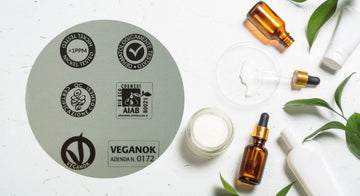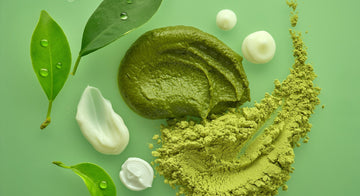Cosmetic certifications: what are they and how important are they?

In stores, pharmacies, and perfumeries, you've surely noticed logos on the packaging of cosmetic products. These logos often refer to certifications.
But what are they? And, above all, what is their purpose?
Cosmetic certifications, as the name suggests, serve to certify something, in this case, compliance with a specific standard. The rules set by the certifying bodies may concern the type of raw materials used, production practices, environmental impact, skin biocompatibility, or other aspects of the product that guarantee certified quality.
But why is having those logos so important, both for the manufacturing companies and for the consumers?
First and foremost, because companies can communicate through simple graphic elements that their products meet quality standards that are controlled and guaranteed by a third party, not by themselves. Furthermore, certification represents recognition for efforts made in the pursuit of ethical and low-environmental-impact products.
Consumers, on the other hand, can very easily understand that they are dealing with a product that respects a certain standard and that, therefore, for example, uses raw materials of plant origin (perhaps organic) that has a sustainable production chain (where they try to minimize waste and impact on the environment), which is indeed a functional and effective product, but at the same time is compatible at the cutaneous level.
All of this is done (or so it is expected) transparently, as certification bodies are independent organizations that impose their strict parameters to allow a company to use their mark or not. The reputation of the certification body itself is at stake.
This element is fundamental to protecting the consumer from the so-called greenwashing, which we have already discussed in a previous article.
A cosmetic certification, when given by a serious and independent body, is obviously much more important and reliable than any other. claim "touted" on packaging or in advertisements (but which may not be confirmed in reality).
Certifications, especially for the fields of food and beauty , there are quite a few of them.
Here are some of the most important ones:
CCPB - Certifies organic and eco-sustainable products worldwide and across various sectors. In the field of beauty It certifies organic and natural cosmetics and eco-sustainable detergents thanks to specific standards developed for the sector.
Bioagricert – It is among the leading organizations in Italy for the certification of organic and quality agri-food products. However, it also provides certification for... "no food" which aims to guarantee the quality of certain product categories by following private standards or international standards. The certification No food. It obviously also covers the cosmetics sector.
ICEA - It offers various opportunities for the certification of cosmetic and cleaning products with high environmental added value. The certification follows the standard COSMOS which certifies finished cosmetic products and raw materials for cosmetic use, formulated using organic ingredients and/or chemical substances of natural origin.
QCertifications - It is an independent control and certification body for organic products of the Bureau Veritas Italia Group. It is currently one of the most qualified entities in the national product certification landscape. It operates in various sectors: agriculture, food service, and, of course, cosmetics.
In this case, its standards are based on those of AIAB.
AIAB – Italian Association for Organic Agriculture - It certifies organic products made by Italian companies. Among its certifications in the beauty field, we find that of "Bio eco cosmetics AIAB" : the first recognition for organic cosmetics created in Italy, in addition to the brand new "Bio eco Saloni AIAB" , launched in September 2023 and dedicated to the new generation of hair salons, attentive to everything that is green
Compliance with the cosmetic regulations guarantees the adoption of a production methodology that involves the use of non-allergenic and non-irritating plant-based raw materials of high quality and low environmental impact, as well as the use of products from organic farming.
Compliance with the salon standards guarantees a high presence of certified organic cosmetics in the store, that over half of the hair coloring treatments are 100% plant-based, and various aspects related to the impact on the environment and the well-being of clients and operators in the salon.
What is presented here is only a very narrow overview of the vast world of cosmetic certifications . There are many others, each with its own specific regulations.
The basic principle, however, is that the consumer does not need to become an expert in the field, a biologist or a chemist. Evaluating a cosmetic product before purchase is always important, but this should be done using authoritative sources and scientifically supported information, which is what certification bodies guarantee.
It is up to companies to communicate correctly and transparently , which should be the starting point for any commercial entity. Consumers can and should always read labels calmly, without being misled, and those small logos we find on packaging can give us an extra hand in making informed and quality purchasing choices!





